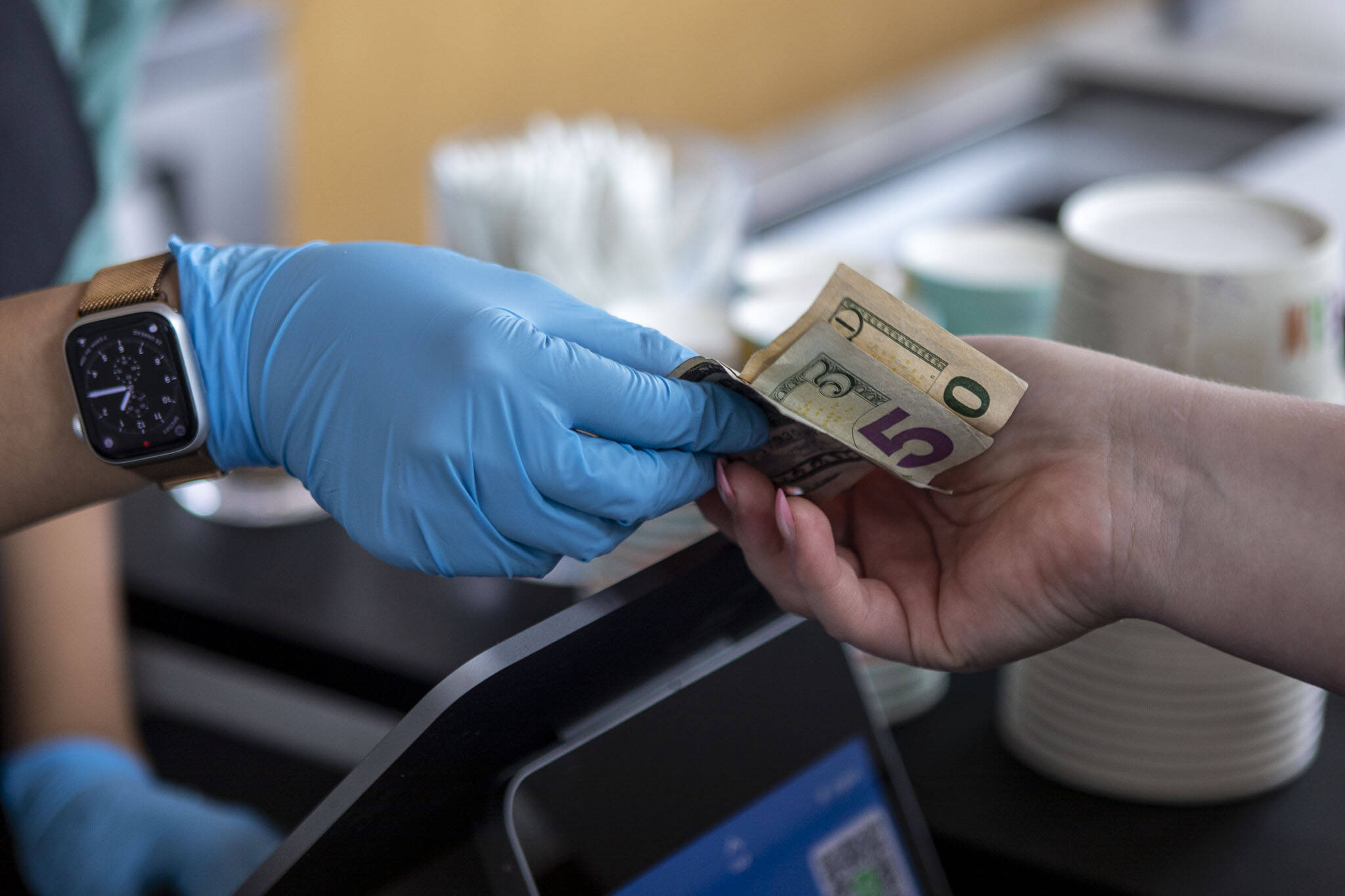EVERETT — All retailers in unincorporated Snohomish County could soon be required to accept cash, instead of relying solely on credit cards and contactless methods.
In the past six years, the number of Americans who make most of their purchases in cash has halved in the past five years, from 25% in 2017 to 13% in 2022, according to Gallup. As more Americans went cashless, more businesses followed suit. The COVID-19 pandemic accelerated the transition, as companies searched for ways to maintain distance and safety.
Snohomish County residents have raised concerns about kids, unsheltered people and others who don’t have a bank account.
“It all started out with a constituent email,” County Council member Nate Nehring said. “Somebody reached out saying that their daughter, who’s a minor, had gone to buy something … but they wouldn’t take cash.”
So Nehring proposed a county ordinance that would require retailers to accept cash up to $200. Past $200, the establishment could refuse.
“The hope is that this will potentially set a model for (Snohomish County) cities to consider as well,” Nehring said. “The dollar is legal currency in the country, so I think it makes sense for people to have that option when they’re making transactions.”
A public hearing on the proposal will be held at 10:30 a.m Sept. 20 in the Jackson Board Room on the county campus or remotely through Zoom.
Minors aren’t the only ones who would be affected. The move could protect anyone without access to credit cards, personal checks or bank accounts. People who don’t meet the minimum balance necessary to open a bank, who have lost their identification or have a poor credit score — all vulnerable groups — may be “unbanked.”
In Washington, 3% of residents are unbanked, according to BankOn Washington. That’s roughly 232,000 people. And about 17% of state residents are considered “underbanked,” meaning they rely on alternative financial services, such as money orders, check-cashing services and payday loans.
For people who rely largely or solely on cash, cashless establishments can be a barrier to food or other basic goods, advocates like the ACLU have argued. Some people also opt to use cash to protect their data privacy.
In Everett, some major businesses have made the transition.
Angel of the Winds Arena, Funko, the Everett Clinic and the AquaSox have gone cashless.
Danny Tetzlaff, general manager of the Everett AquaSox, said they primarily went cashless for safety reasons after COVID.
“The second reason is just speed of service,” Tetzlaff said. “We have 3,000 people in the ballpark. … It allows our employees to wrap up the books at the end of the night in a much quicker manner than having to count the cash from 25 different cash registers and points of sale.”
Tetzlaff noted many sports venues across the country have gone cashless. Being cashless “makes it easier,” he said, but he’s not opposed to legislation requiring cash as a payment option.
Regardless, the county ordinance wouldn’t affect the AquaSox or any other business in cities around Snohomish County: the ordinance would only impact unincorporated parts of the county.
As of this month, Everett officials don’t have plans to bring forward a similar proposal, city spokesperson Simone Tarver said.
To ensure the ordinance wouldn’t cause an undue burden, Nehring said the county has reach out to several local chambers of commerce. Nehring has already proposed amendments to the local law, carving out an exception for vendors at farmers markets or a future public health emergency.
In June, King County passed similar legislation.
To acknowledge safety concerns, King County’s ordinance allows retailers to apply for an exemption “based on the unique hardships a retailer faces,” such as a history of theft. Home-based businesses and businesses with only one employee on site at a time could also be exempt.
Nationally, similar legislation has been passed in New York City, Philadelphia, San Francisco, Washington D.C. and the states of Colorado, Massachusetts and New Jersey.
Kayla J. Dunn: 425-339-3449; kayla.dunn@heraldnet.com; Twitter: @KaylaJ_Dunn.
Talk to us
> Give us your news tips.
> Send us a letter to the editor.
> More Herald contact information.

























